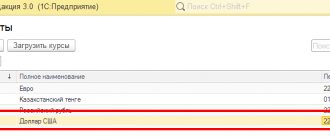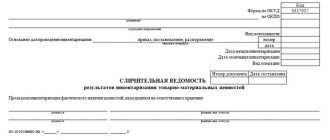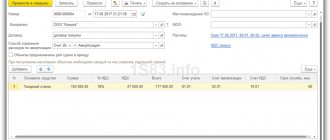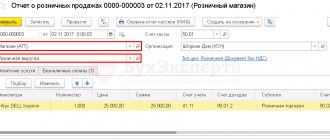How is land tax calculated and which PBU to apply?
In order to determine the accounting standard that should be used for land tax accounting, you need to understand which accounting category it should be classified into.
In accordance with paragraph 1 of Art. 65 of the Land Code of the Russian Federation, a tax on a land plot is a form of payment for its use. Plots of land in accounting are taken into account as part of fixed assets, thus, payment for the use of land (an asset) is nothing more than an expense that is associated with the process of operation and use of an asset.
Read about how land tax is calculated and what changes in the order of its payment in 2021.
Accounting for expenses of the organization is carried out in accounting in accordance with the norms of PBU 10/99 (approved by order of the Ministry of Finance of Russia dated May 6, 1999 No. 33n). Land tax can be reflected as follows:
- costs for main activities (clause 5, clause 7 of PBU 10/99);
- other costs (clause 11 of PBU 10/99).
Important! It is possible to take into account land tax as part of costs if capital construction is not carried out on this land plot, it has been put into operation and is an asset.
If capital construction is carried out on a site, then payment for land in the form of land tax should be taken into account in accounting as part of capital construction costs. This norm is reflected in PBU 6/01 (clause 8 and clause 14).
Let's consider all possible entries for calculating land tax in more detail.
The trend is encouraging
It is gratifying that the position of the Supreme Arbitration Court has long been the flagship for officials on the issue under consideration. From their pens came many similar explanations, which are based on this verdict of the high authority. Thus, the green light was given to reflect the previous overpayment in current income:
- on property tax (letters of the Ministry of Finance of Russia dated 09.09.2019 No. 03-03-06/1/69400, dated 04.03.2019 No. 03-03-06/1/23109 and dated 10.15.2015 No. 03-03-06/4 /59102);
- on insurance premiums (see letter of the Ministry of Finance dated January 23, 2014 No. 03-03-10/2274, sent for information and use in work by letter of the Federal Tax Service dated February 12, 2014 No. GD-4-3 / [email protected] ). It has been clarified that if a company is a member of the consolidated tax group during the adjustment period, the “surplus” should be included in the consolidated tax base in accordance with Article 278.1 of the Tax Code of the Russian Federation;
- state duties. In this case, income is recognized on the date the government agency makes a decision to return this amount (letter of the Ministry of Finance of Russia dated March 2, 2018 No. 03-03-06/1/13312).
What if the company made a loss in the current reporting (tax) period? In our opinion, the mechanism described above also works in this case. The financial result (profit or loss) can only be important when errors are corrected, but in our situation, paragraph 1 of Article 54 of the Code does not apply. Therefore, “clarification” is again not required. This conclusion is indirectly confirmed by the letter of the financial department dated December 27, 2018 No. 03-03-06/1/95703.
The described approach also applies to “simplified people”. In a letter dated 10.10.2018 No. BS-4-21/19773, the Federal Tax Service indicated: the “surplus” of corporate property tax, previously included in expenses on the basis of subparagraph 22 of paragraph 1 of Article 346.16 of the Code, is reflected in the income of the current period for simplified taxation purposes.
What if, during the period of overestimation of land (“property” or some other) tax, the company was on the general regime, but during the adjustment period it is already on the “simplified” regime? The transition to a special regime in this case will not have a fundamental impact - the organization will increase simplified taxation income by the amount of overpayment (letter of the Ministry of Finance of Russia dated August 30, 2019 No. 03-11-06/2/66836).
Postings for accounting for settlements with the budget for land tax (account 68, subaccount “Land Tax”)
All taxes in accounting are reflected in account 68 “Taxes”, and for each tax a sub-account must be opened - in our case, the “Land Tax” sub-account. This procedure is carried out by approving the working chart of accounts for the organization, which is an integral annex to such an important and necessary document in accounting as the “Accounting Policy”.
Since account 68 is passive, all land tax accruals will be made against the credit of this account.
Now let's look at the accounts that can be debited in correspondence with the specified 68th account.
- Land tax refers to the costs of core activities.
When a plot of land is used in the process of carrying out a certain type of activity by an organization, then costs in the form of payments for land (tax) should be reflected in the following accounting accounts:
- account 20, if expenses relate to the main production;
- account 23, if expenses relate to auxiliary production;
- account 25, if general production costs;
- account 26, if general expenses;
- account 29, if costs relate to service farms and production;
- score 44 if these are sales costs.
To summarize all of the above, the entries for calculating land tax when assigning the costs of payment for land (tax) to expenses for the type of activity will be as follows:
| Debit | Credit |
| 20, 23, 25, 26, 29, 44 | 68 (land tax subaccount) |
- Land tax is classified as other costs.
If a plot of land is leased by an organization, then the payment for the land should be reflected as part of other costs.
Important! This rule applies if leasing land is not a fundamental activity, and in this way assets that are not in demand by the organization are simply effectively used.
Other expenses are reflected in accounting on account 91.2. The wiring will be like this:
| Debit | Credit |
| 91.2 | 68 (land tax subaccount) |
- Accrual of land tax as part of capital costs of construction.
During capital construction, costs are collected for each object on account 08 “Investments in non-current assets” under the sub-account “Construction of fixed assets” opened to it. In this case, when land tax is calculated, the posting will look like this:
| Debit | Credit |
| 08 (sub-account for OS construction) | 68 (land tax subaccount) |
We considered the calculation of land tax in accordance with the different nature of the use of the site. Now let's look at the posting when paying this tax. It will be as follows:
| Debit | Credit |
| 68 (land tax subaccount) | 51 |
Find a sample payment order for payment of land tax (sample) here.
Read about the specifics of paying land tax and reporting on it in ConsultantPlus. Study the material by getting trial access to the K+ system for free.
In the event that you want to repay land tax obligations to the budget at the expense of your organization’s existing overpayment for another tax (taxes), the posting will be as follows:
| Debit | Credit |
| 68 (land tax subaccount) | 68 (tax subaccount at the expense of which the offset is made) |
Accounting and taxation of transactions with land plots
Vasiliev Yu.A., General Director of CG "Ayudar", Ph.D. Material provided by the magazine “Topical Issues of Accounting and Taxation” Accounting According to clause 5 of PBU 6/01, land plots are subject to accounting as part of fixed assets. The object must be accepted for accounting at its original cost, which includes: - amounts paid in accordance with the agreement to the seller; — registration fees, state duties and other similar payments made in connection with the acquisition (receipt) of rights to an object of fixed assets; - remunerations paid to the intermediary organization through which the fixed asset was acquired; - other costs directly related to the acquisition of this object. In particular, interest on borrowed funds accrued before the land plot was accepted for accounting, if they were raised for its acquisition. In accordance with the Instructions for using the Chart of Accounts[1], the organization’s costs for acquiring ownership of a land plot are initially collected on account 08 “Investments in non-current assets” subaccount 08-1 “Purchase of land plots”. The acceptance of a land plot for accounting is reflected in the debit of account 01 “Fixed assets” in correspondence with account 08 “Investments in non-current assets”. Example. Alpha LLC acquired ownership of a land plot. The cost of the land under the contract was 1,800,000 rubles. For notary services, an employee of the enterprise paid 27,000 rubles from funds issued on account, and 7,500 rubles were paid to the justice institution for registering property rights. The organization's accountant will reflect the transactions performed as follows:
| Contents of operation | Debit | Credit | Amount, rub. |
| Payment for land has been made | 60 | 51 | 1 800 000 |
| Capital investments in land are taken into account | 08-1 | 60 | 1 800 000 |
| The fee for notary services was included in the cost of the acquired land. | 08-1 | 71 | 27 000 |
| Funds transferred to a justice institution | 76 | 51 | 7 500 |
| The costs of registering ownership rights are included in the increase in the value of the land plot. | 08-1 | 76 | 7 500 |
| The land plot has been registered | 01 | 08-1 | 1 834 500 |
Paragraph 17 of PBU 6/01 establishes that land plots are not subject to depreciation, since their consumer properties do not change over time. Thus, accounting legislation under no circumstances allows the costs of purchasing land to be taken into account as part of the cost of products (works, services). Please note: in the specialized literature there is an opinion about the possibility of revaluing land. This conclusion is incorrect. According to clause 43 of the Methodological Guidelines for Accounting of Fixed Assets[2], land plots are not subject to revaluation. It should be noted that in accordance with paragraph 1 of Art. 83 of the Tax Code of the Russian Federation, an organization is obliged to register as a taxpayer with the tax authority both at its location and at the location of the real estate it owns. An organization's application for registration of taxable real estate is submitted by the organization to the tax authority at the location of this property within 30 days from the date of its registration. The location of the property means the place of its actual location. Moreover, if the organization is registered with the inspection of the Federal Tax Service of the Russian Federation, then it is not required to re-register in connection with the acquisition of a land plot with the same tax authority. This conclusion was made in the Resolution of the FAS CO dated January 30, 2001 No. A54-2833/00-C7. Consequently, the taxpayer cannot be held liable in accordance with Art. 116 of the Tax Code of the Russian Federation in the form of a fine in the amount of 10,000 rubles. Documentation Resolution No. 7 of the State Statistics Committee of the Russian Federation[3] does not contain a special form of the primary document for processing the operation of registering a land plot. Consequently, organizations have the right to use form No. OS-1 “Act of acceptance and transfer of fixed assets (except for buildings, structures).” At the same time, for organizations of the agro-industrial complex, Order of the Ministry of Agriculture of the Russian Federation No. 750[4] approved a specialized form No. 401-APK “Act for the registration of land”. The act reflects the following information: quantity, type of land, quality of land, book value of the object being registered. The location of the land plot and its local name are indicated; number and date of the order of the receiving party, on the basis of which the object was capitalized. When transferring a land plot, a photocopy of the explication and a plan of the boundaries of the plot are attached to the document, and a link to them is given in the deed. The act is drawn up by the commission in two copies for the receiving and transferring parties. Please note that form No. OS-1 does not have sections for entering the above information. At the same time, such indicators as the manufacturing organization, the method and rate of depreciation, useful life, residual value, etc. cannot be filled in for a plot of land. Consequently, the organization can either reflect them in the “Other characteristics” section of sheet 2, or use form No. 401 of the AIC [5] to complete the operation of accepting a land plot for registration. It is up to the company to decide what document to use to document the transaction. At the time of writing the article, the author was not aware of any official clarifications on the issue under consideration. Letter of the Ministry of Finance of the Russian Federation dated 04/05/05 No. 03-03-01-04/1/158, in our opinion, did not clarify the situation with the use of one or another unified form. It states, in particular: “The acceptance of land plots for accounting as part of fixed assets is carried out on the basis of a duly approved act of acceptance and transfer of fixed assets and documents confirming their state registration in the Unified State Register of Rights, with the assignment cadastral number by the body carrying out the activities of maintaining the state land cadastre. To accept for accounting of land, land shares, including for temporary use, specialized forms of primary accounting documentation for organizations of the agro-industrial complex No. 401 APK, No. 402 APK, No. 403 APK, approved by order of the Ministry of Agriculture of the Russian Federation dated May 16, 2003, are provided. No. 750". Considering the fact that land is a specific object of fixed assets, the acceptance for accounting of acquired land plots, in our opinion, for all organizations, not just agricultural ones, can be reflected using form No. 401-APK, and not the “Act on acceptance and transfer of fixed assets (except for buildings, structures)” according to form No. OS-1. In principle, such an opportunity is provided to organizations by clause 7 of the Methodological Guidelines for Accounting for Fixed Assets, according to which movement operations, including the receipt of fixed assets, are documented in primary accounting documents containing all the mandatory details established by the Federal Law of November 21, 96 No. 129-FZ “On Accounting”. As primary accounting documents, unified primary documents for accounting of fixed assets, approved by Resolution of the State Committee on Statistics of the Russian Federation dated January 21, 2003 No. 7 “On approval of unified forms of primary accounting documentation for accounting of fixed assets,” can be used. Value added tax Since January 1, 2005, transactions involving the sale of land plots and shares in them, regardless of the status of their sellers and buyers, have been removed from the object of VAT taxation (clause 6, clause 2, article 146 of the Tax Code of the Russian Federation). Thus, if the purchase and sale of a land plot is carried out in the current year, then the question of calculating and paying tax does not arise for either party to the agreement. Let us recall that in 2004 the situation with taxation and the use of deductions was more complicated. Operations for the sale of land plots, including those purchased from the state in the process of land privatization, were recognized as subject to VAT. The tax payer was the person acting as the seller in the land purchase and sale agreement. This was the official point of view of the Tax Policy Department of the Ministry of Finance[6] and the Ministry of Taxes of the Russian Federation[7] last year. At the same time, these departments could not reach a unanimous opinion on the issue of the possibility of accepting paid VAT amounts for deduction. Thus, the essence of the position of the Tax Ministry was that acquired land plots must be classified as fixed assets, therefore, the right to accept amounts of paid VAT for deduction arises only from the moment depreciation is calculated in tax accounting (clause 5 of Article 172 of the Tax Code of the Russian Federation) . According to paragraph 2 of Art. 256 of the Tax Code of the Russian Federation, land does not belong to depreciable property, which means that the organization does not have the right to a tax deduction. Thus, the MNF in its reasoning proceeded from the fact that land is an object of fixed assets. The Ministry of Finance, on the contrary, believed that the amounts of VAT paid by taxpayers when purchasing land plots should be deducted in the generally established manner (letters dated 01.09.03 No. 04-03-01/124, dated 06.10.03 No. 04-03-11/ 82), subject to compliance with the requirements of Art. 171 Tax Code of the Russian Federation. His position was based on the fact that land plots in accordance with Art. 130 of the Civil Code of the Russian Federation are real estate, that is, goods (clause 3 of Article 38 of the Tax Code of the Russian Federation). The courts followed the same approach to the issue of deducting amounts of tax paid last year. Thus, the FAS TsO Resolution No. A14-3037-03/57/33 dated October 31, 2003 states that the amounts of value added tax paid by taxpayers when purchasing land plots are accepted for deduction on the basis of Articles 170, 171 of the Tax Code of the Russian Federation. The FAS Decree UO dated February 16, 2004 No. F09-145/04AK refutes the tax authority’s argument that the land plot is not subject to depreciation, which means that a tax deduction cannot be applied. The court pointed out that such a basis is not contained in the norms of the Tax Code of the Russian Federation establishing tax deductions and the procedure for their application, and found it legitimate for the taxpayer to include the paid VAT amounts as tax deductions. A similar opinion was expressed in the Resolution of the Federal Antimonopoly Service of the Central District of February 10, 2004 No. A14-5238/03/167/26. The taxpayer’s right to a tax deduction is supported in resolutions of the Federal Antimonopoly Service of the North-West District dated December 20, 2004 No. A56-8701/04, and the Federal Antimonopoly Service of the North-West District dated December 28, 2004 No. F08-6258/04-2397A. At the moment, the issue of the legality of applying the VAT deduction paid when purchasing a land plot in 2004 has been resolved by both the Ministry of Finance and the Federal Tax Service in favor of taxpayers. Evidence of this is Letter of the Ministry of Finance of the Russian Federation dated 02/04/05 No. 03-04-11/14. It, in particular, establishes: “.Amounts of value added tax paid by taxpayers on land plots acquired before January 1, 2005 should be taken for deduction in the generally established manner, as reported by the Federal Tax Service of Russia in letter dated January 13, 2005 No. 03 -04-11/03" . Thus, two conclusions follow from the letter. Firstly, “cautious” accountants who did not take advantage of the deduction in 2004 can submit to the Federal Tax Service an updated VAT return for the period in which the following conditions were met: - there is an invoice; — the land plot is intended for use in activities subject to VAT; — the land plot has been paid for; — the land plot has been accepted for accounting. Secondly, accountants who accepted the tax amount for deduction despite disagreements between departments in 2004 can, as they say, “sleep peacefully,” since both the Ministry of Finance and the Federal Tax Service of the Russian Federation recognized their actions as correct. Please note: in 2004, the transfer of property of state and municipal enterprises purchased through privatization was excluded from the object of taxation (clause 3, clause 2, article 146 of the Tax Code of the Russian Federation). At the same time, the tax authorities did not extend the transfer of land plots belonging to the property of state and municipal enterprises to property purchased through privatization, and indicated that operations for the sale of land plots, including those purchased in the process of privatization of state-owned lands, are not exempt from value added tax. Consequently, operations for the transfer (sale) of land plots are subject to taxation with value added tax (see, for example, Letter of the Ministry of Taxes of the Russian Federation No. VG-9-03/40[8]). However, the Resolution of the Presidium of the Supreme Arbitration Court of the Russian Federation dated November 2, 2004 No. 5607/04 states that if an organization, under a purchase and sale agreement, acquired ownership of land plots on which privatized real estate is located, which belonged to it before privatization as a state enterprise, then the transfer of land plots to The property of this organization under a purchase and sale agreement is carried out in the manner of privatization and, therefore, is not subject to VAT. When calculating the tax, it does not matter when the buildings and structures were privatized - before or after the Land Code of the Russian Federation (hereinafter referred to as the Land Code of the Russian Federation) came into force. Thus, if the organization paid VAT, then the deduction cannot be applied in this situation, since the amount paid as part of the cost of the purchased land plots is actually not a tax. It must be returned in the manner prescribed by Art. 36 of Law No. 178-FZ “On the privatization of state and municipal property”[9], according to which the return of funds for invalid purchase and sale transactions of state or municipal property is carried out on the basis of a court decision that has entered into force at the expense of funds received under other transactions privatization of property. profit tax Obviously, when deciding on the legality of accounting for tax purposes the expenses incurred by an organization for the purchase of a land plot, as, indeed, in any other case of determining the possibility of including expenses in tax expenses, one should proceed from the conditions of paragraph 1 of Art. 252 of the Tax Code of the Russian Federation: expenses must be justified, documented and aimed at generating income. So, if these requirements are met, then there is only one conclusion: expenses reduce the taxable profit of the organization. The legitimacy of this position is confirmed by Art. 270 of the Tax Code of the Russian Federation, which does not prohibit taking into account the costs of acquiring land. Let us note that paragraph 5 of this article (the costs of acquiring and (or) creating depreciable property are not taken into account) does not apply in this case, because land is not depreciable property. The next question, no less important for the accountant: what expenses are included in the costs incurred and at what point can they be accepted for tax purposes? Chapter 25 of the Tax Code of the Russian Federation does not contain specific instructions on how to take into account the costs of an enterprise for the purchase of a land plot. Therefore, the taxpayer can choose one of three possible options. The first option seems to be the riskiest. The costs of acquiring land ownership in full are included in material costs on the basis of paragraphs. 3 p. 1 art. 254 of the Tax Code of the Russian Federation: “Material expenses, in particular, include the following expenses of the taxpayer. 3) for the purchase of tools, fixtures, inventory, devices, laboratory equipment, work clothes and other property that is not depreciable property. The cost of such property is included in material costs in full as it is put into operation.” Of course, the tax authorities will be against a one-time reduction in the income tax base by the amount of expenses associated with the acquisition of a land plot. However, it seems to us, based on a literal reading of paragraphs. 3 p. 1 art. 254 of the Tax Code of the Russian Federation, then you can defend your position in arbitration court. At the same time, the tax authorities will most likely insist that the concept of “putting into operation” does not apply to land. The second, softer and most acceptable, from our point of view, option is to gradually write off the cost of land as part of tax expenses, taking into account the principle of uniformity. The problem lies in justifying the period during which these expenses will be taken into account for tax purposes. And finally, the third, safest and at the same time the most unprofitable option for the organization is to not take into account the costs of acquiring a land plot for tax purposes at all. Last year, the Russian Ministry of Finance clearly stated that the costs associated with the acquisition of land plots are capital investments and, in accordance with paragraph 49 of Article 270 of the Code, do not reduce the tax base (Letter of the Ministry of Finance of the Russian Federation dated May 19, 2003 No. 04-02-05/3/ 50). In 2005, he did not change his position (Letter of the Ministry of Finance of the Russian Federation dated 04/05/05 No. 03-03-01-04/1/158): “The Code does not provide for the deduction of the cost of acquired land plots from the tax base.” The refusal is based on the fact that, according to paragraphs. 3 p. 1 art. 254 of the Tax Code of the Russian Federation, in order to write off the cost of non-depreciable property as expenses, it is necessary to put it into operation. For land plots, the concept of “commissioning” is not provided for by either accounting or tax accounting. However, this opinion was refuted in the Resolution of the Federal Antimonopoly Service of August 17, 2004 No. A08-2355/04-21-16: “The acquired land plots were registered as part of fixed assets, according to the transfer and acceptance certificate, with the assignment of an inventory number. According to paragraph 2 of Art. 256 of the Tax Code of the Russian Federation, land is not subject to depreciation; the costs of its purchase can be written off as material expenses on the basis of subclause 3 of clause 1 of Art. 254 Tax Code of the Russian Federation. The cost of such property is included in material costs in full as it is put into operation. The Company, in its accounting policy for 2003, provided for the inclusion of costs for the acquisition of non-depreciable property (including the acquisition of land) as expenses taken into account for taxation of profits in the full amount at the time of commissioning in accordance with paragraphs. 3 p. 1 art. 254 Tax Code of the Russian Federation. Land plots were accepted by the Company for registration as part of fixed assets on June 28, 2003 on the basis of acts of form OS-1 “Acceptance and transfer certificate of fixed assets”. Under such circumstances, the court of first instance rightly recognized as untenable the tax inspectorate’s argument that the Company unlawfully included the costs of acquiring land plots as fixed assets as expenses taken into account when taxing profits.” In any case, on the basis of clause 40 of Art. 264 of the Tax Code of the Russian Federation, a taxpayer may simultaneously include in other expenses associated with production and (or) sale, payments for registration of rights to real estate and land, transactions with these objects, payments for providing information about registered rights, payment for services of authorized bodies and specialized organizations for property assessment, production of cadastral and technical registration (inventory) documents of real estate. Simplified taxation system Organizations applying the simplified taxation system, when determining the object of taxation, have the right to reduce the income received by the amount of expenses for the acquisition of fixed assets. Subclause allows you to do this. 1 clause 1 art. 346.16 Tax Code of the Russian Federation. However, the moment of accounting for expenses is defined by the legislator as “...the moment of putting these fixed assets into operation.” This wording is given in paragraphs. 1 clause 3 of this article. At the same time, despite the fact that the concept of “commissioning” is not used in relation to land, it is possible to take into account the expenses incurred when calculating the single tax. If a land plot was acquired during the period of application of the simplified taxation system, the enterprise has the right to reduce the income received by the cost of the land. This opinion is expressed in letters of the Ministry of Finance of the Russian Federation No. 03-03-02-04/1-18[10] and dated 02/07/05 No. 03-03-02-04/1-29.
| When determining the tax base for a single tax, an organization can take into account the cost of a land plot acquired in ownership during the reporting period of state registration of ownership of this plot (Letter of the Ministry of Finance of the Russian Federation dated 03/05/05 No. 03-03-02-04/1/57). |
An interesting, in the author’s opinion, conclusion is contained in the Letter of the Ministry of Finance No. 03-03-02-04/1/99[11], devoted to the procedure for writing off expenses for the purchase of a land plot for the purpose of using it for renting: “A plot of land acquired in ownership will apply to fixed assets put into operation from the date of entry into force of the agreement to transfer it for lease.
If the validity period of the agreement for the transfer of a land plot for lease exceeds one year, then the costs of acquiring the plot are taken into account at the time of submitting the relevant documents for state registration.” Thus, an organization applying the simplified tax system, when calculating the single tax, has the right to reduce the income received by the amount of expenses for the acquisition of a land plot that is intended for rent. If the validity period of the lease agreement is less than a year, then the moment of accounting for expenses will be the day the agreement enters into force (the date of the acceptance certificate); if more than a year, expenses can be written off on the day of submitting documents for state registration, and not after the agreement is registered and it comes into force. The procedure for accounting for costs in the event that a plot of land was acquired before the transition to a special tax regime has not yet been regulated. For such fixed assets, the inclusion of their cost in expenses depends on the useful life in accordance with the Classification of fixed assets included in depreciation groups approved by the Government of the Russian Federation. Obviously, this procedure cannot be applied to land. Thus, expenses for the acquisition of plots incurred by the organization before the transition to the simplified tax system cannot be taken into account for tax purposes. We can only hope that in the near future the legislator will eliminate the gap contained in the text of Chapter. 25 and 26.2 of the Tax Code of the Russian Federation, and will specifically prescribe the procedure for writing off expenses incurred for the purchase of land to reduce the tax base for income tax and single tax. Land tax Article 65 of the Land Code of the Russian Federation establishes that the use of land in the Russian Federation is paid. The forms of payment for the use of land are land tax (before the introduction of real estate tax) and rent. In 2005, firstly, a new chapter of the Tax Code of the Russian Federation “Land Tax” was in force, and secondly, the old Law “On Payment for Land”[12] (see Article 3 of Law No. 141-FZ[13]). Moreover, Ch. 31 “Land tax” came into force only in those regions where local authorities managed to introduce a land tax before January 1, 2005. For this purpose, the corresponding document, according to Art. 5 of the Tax Code of the Russian Federation, had to be published no later than November 30, 2004. Otherwise, the “new” land tax will only come into force on January 1, 2006, therefore, in the current year, taxpayers need to be guided by the provisions of Law No. 1738-1 “On Payment for Land”. Let us briefly recall the main differences between the “new” tax and the “old” one. Article 394 of the Tax Code of the Russian Federation establishes tax rates as a percentage of the cadastral value of land, and by Law No. 1738-1 - in rubles per unit area. Payment and reporting deadlines vary. Thus, in accordance with the “old” law, organizations must submit calculations to the tax authority no later than July 1 and make payments in equal installments before September 15 and November 15 (Article 17 of the Law of the Russian Federation “On Payment for Land”). If we are guided by the Tax Code of the Russian Federation, then the first advance payment had to be submitted no later than April 30, 2005 (Articles 393, 398 of the Tax Code of the Russian Federation). Following the new rules, you must report for the six months no later than July 31. Municipalities have the right to determine the timing of advance payments independently. The incident is that, according to paragraph 2 of Art. 398 of the Tax Code of the Russian Federation, the tax calculation form for advance tax payments is approved by the Ministry of Finance of the Russian Federation, which did not have time to approve this form in a timely manner. For this reason, taxpayers in those regions where the legislative authorities had already introduced a “new” tax, naturally, were unable to report on advance payments for the first quarter of 2005 using the new form (previously, the form of the Land Tax Declaration was approved by Order of the Ministry of Taxes No. BG-3-21 /725[14] ). In Letter No. GV-6-21/286[15], the Federal Tax Service, with reference to Letter No. 03-06-02-02/17 of the Ministry of Finance of the Russian Federation dated March 14, 2005, informs taxpayers that the tax return for land tax, the form of which is approved by order of the Ministry of Taxes and Taxes of Russia dated December 29, 2003 No. BG-3-21/725, no changes will be made. This tax return is used based on calculations for 2005 by taxpayers paying tax in accordance with Law of the Russian Federation No. 1738-1 “On Payment for Land”. The letter also draws attention to the fact that when filling out section 2 “Calculation of the tax base and tax amount for settlement lands; on lands of industry, transport, communications, radio broadcasting, television, computer science and space support located outside populated areas; for lands of the water fund" of the declaration on line 240 in relation to land plots acquired by taxpayers on the terms of housing construction on them, the tax rate is indicated taking into account the increasing coefficients introduced by Federal Law No. 116-FZ[16] in Art. 8 of Law No. 1738-1 “On payment for land”. In addition, in connection with the change in the procedure for applying the budget classification of the Russian Federation, approved by Order of the Ministry of Finance of the Russian Federation No. 114n[17], when filling out the Land Tax Declaration, the digit capacity for the indicator “Budget Classification Code” must be increased to twenty characters. However, these recommendations applied only to taxpayers in those regions where the “old” Law “On Payment for Land” is in force. The question of which calculation for the first quarter to submit to the tax authority for payers of the “new” tax remained open. Order of the Ministry of Finance of the Russian Federation No. 66n[18] approved the form for calculating advance payments for land tax and recommendations for filling it out for organizations that pay the “new” tax (according to the rules of Chapter 31 of the Tax Code of the Russian Federation). This order applies starting with the submission of calculations for the second reporting period of the current year. Due to the fact that the form of calculation as of April 30 was not approved, the Federal Tax Service of the Russian Federation in its Letter dated May 13, 2005 No. 21-4-04/171 indicated that the calculation must be submitted along with the half-year reporting no later than July 31, 2005 years Please note: despite Art. 15 of Law No. 1738-1 “On Payment for Land”, which determines that the basis for establishing land tax is a document certifying the right of ownership (possession or use of a land plot); the absence of this document from the taxpayer does not exempt him from paying land tax.
| The absence of a document on the right to use land, the receipt of which depends solely on the will of the land user himself, cannot serve as a basis for exempting him from paying land tax (resolutions of the Presidium of the Supreme Arbitration Court of the Russian Federation dated 01/09/02 No. 7486/01, dated 10/14/03 No. 7644/03) . |
At the same time, the Letter of the Ministry of Finance of the Russian Federation dated January 21, 2005 No. 03-06-02-02/03 states that in accordance with paragraph 4 of Article 8 of the Federal Law of November 29, 2004 No. 141-FZ, in the event of absence in the Unified State Register of Rights for real estate and transactions with it information on existing rights to land plots, taxpayers for land tax are determined on the basis of government acts, certificates and other documents certifying rights to land and issued to individuals or legal entities before the entry into force of the Federal Law of July 21, 1997 No. 122-FZ “On state registration of rights to real estate and transactions with it”, which, in accordance with the law, have equal legal force with entries in the Unified State Register of rights to real estate and transactions with it, or on the basis of acts issued by state bodies authorities or local government bodies within their competence and in the manner established by the legislation in force in the place of publication of such acts at the time of their publication, on the provision of land plots.
Thus, landowners and land users, regardless of the type of document, as well as its presence or absence, must fulfill the obligation to pay land tax to the budget. The courts adhere to a similar point of view (see, for example, resolutions of the Federal Antimonopoly Service of the North-West District dated 02/07/05 No. A56-17258/04, dated 01/24/05 No. A56-11977/04, etc.). And I would like to draw the attention of readers to one more letter from the Ministry of Finance of the Russian Federation. Letter of the Ministry of Finance of the Russian Federation dated 02/07/05 No. 03-06-02-04/08 is devoted to the issue of the need to pay land tax by the buyer of part of a building located on a land plot provided for free use. The Ministry of Finance indicated that, on the basis of Art. 16 of Law No. 1738-1 for land plots intended to serve a building that is in common ownership of several legal entities or citizens, land tax is charged to each of these owners in proportion to their share of these buildings. Article 35 of the Land Code of the Russian Federation establishes that when the ownership of a building, structure, structure located on someone else’s land plot is transferred to another person, he acquires the right to use the corresponding part of the land plot occupied by the building, structure, structure and necessary for their use, for the same conditions and to the same extent as the previous owner. Consequently, the organization - the owner of part of the building - is at the same time the land user of part of the land plot occupied by the building. Thus, the buyer of a share in the right of common ownership of a building is a taxpayer of land tax from the moment of registration of the right to the acquired share, and the tax should be paid to the owners in proportion to their shares in the right of ownership. Property tax The procedure for determining the tax base for property tax is regulated by Chapter. 30 Tax Code of the Russian Federation. In accordance with paragraph 1 of Art. 374 of the Tax Code of the Russian Federation, the object of taxation for Russian organizations is movable and immovable property recorded on the balance sheet as fixed assets in accordance with the established accounting procedure. Paragraph 4 of this article contains a list of objects that are not recognized as objects of taxation. Land plots are named in this list (clause 1, clause 4, article 374 of the Tax Code of the Russian Federation), therefore, if they are on the balance sheet of an organization, then they are not subject to corporate property tax. [1] Instructions for the use of the Chart of Accounts for accounting of financial and economic activities of organizations, approved. By order of the Ministry of Finance of the Russian Federation dated October 31, 2000 No. 94n. [2] Guidelines for accounting of fixed assets, approved. By Order of the Ministry of Finance of the Russian Federation dated October 13, 2003 No. 91n. [3] Resolution of the State Statistics Committee of the Russian Federation dated January 21, 2003 No. 7 “On approval of unified forms of primary accounting documentation for accounting of fixed assets.” [4] Order of the Ministry of Agriculture of the Russian Federation dated May 16, 2003 No. 750 “On approval of specialized forms of primary accounting documentation.” [5] FAS CO considered it legal to formalize the operation of registering a land plot using form No. OS-1 (see Resolution No. A08-2355/04-21-16 dated August 17, 2004). [6] Letter of the DNP MF RF dated 01.09.03 No. 04-03-01/124 “On the procedure for applying VAT when acquiring land.” [7] Letters of the Ministry of Taxes of the Russian Federation dated 02.19.03 No. VG-9-03/40 “On the calculation of VAT when purchasing land plots” and dated 07.22.03 No. VG-6-03/807. [8] Letter of the Ministry of Taxes of the Russian Federation dated February 19, 2003 No. VG-9-03/40 “On the calculation of VAT when purchasing land plots.” [9] Federal Law of December 21, 2001 No. 178-FZ “On the privatization of state and municipal property.” [10] Letter of the Ministry of Finance of the Russian Federation dated January 26, 2005 No. 03-03-02-04/1-18 “On accounting for expenses for the acquisition of a land plot by an organization applying the simplified tax system.” [11] Letter of the Ministry of Finance of the Russian Federation dated December 28, 2004 No. 03-03-02-04/1/99 “On the costs of acquiring land plots.” [12] Federal Law of October 11, 1991 No. 1738-1 “On payment for land.” [13] Federal Law of November 29, 2004 No. 141-FZ “On amendments to part two of the Tax Code of the Russian Federation and some other legislative acts of the Russian Federation, as well as on the recognition as invalid of certain legislative acts (provisions of legislative acts) of the Russian Federation.” [14] Order of the Ministry of Taxes of the Russian Federation dated December 29, 2003 No. BG-3-21/725 “On approval of the tax return form for land tax and instructions for filling it out.” [15] Letter of the Federal Tax Service of the Russian Federation dated April 11, 2005 No. GV-6-21/ [email protected] “On the tax return for land tax in 2005.” [16] Federal Law of August 20, 2004 No. 116-FZ “On Amendments to Article 8 of the Law of the Russian Federation “On Payment for Land”. [17] Order of the Ministry of Finance of the Russian Federation dated December 10, 2004 No. 114n “On approval of the Instructions on the procedure for applying the budget classification of the Russian Federation.” [18] Order of the Ministry of Finance of the Russian Federation dated May 19, 2005 No. 66n “On approval of the Tax calculation form for advance payments of land tax and Recommendations for its completion.”
Is it possible to reduce land tax?
It is possible to reduce the mandatory fiscal payment only if you belong to preferential categories of citizens. There are two types of benefits - federal and regional.
At the federal level, the following can count on benefits:
- Veterans of WWII and other military operations;
- disabled people of groups I and II;
- disabled children;
- Heroes of the USSR and the Russian Federation;
- victims as a result of the liquidation of nuclear accidents (including at the Chernobyl nuclear power plant).
Regional legislation may establish benefits for other social categories of citizens. For example, for pensioners or for large families. You can find out whether a benefit is provided for you or not at the municipality or at the regional branch of the Federal Tax Service.







